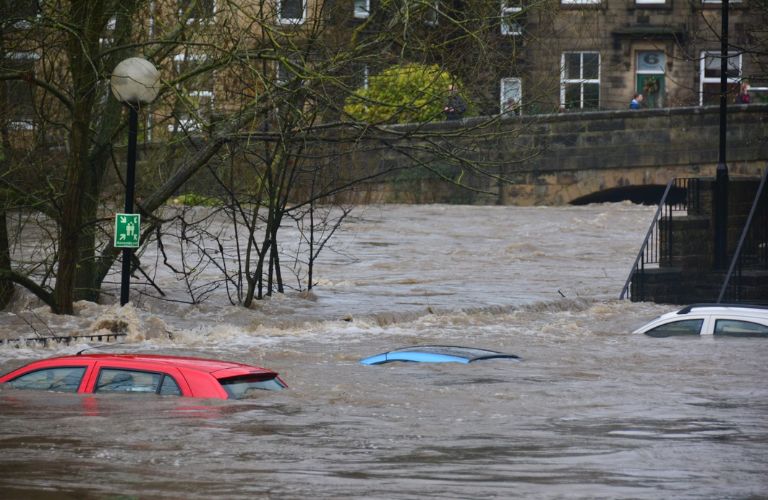Von Schledorn Auto Group Official Blog
Five Tips to Help Deal with Flash Flooding
By Product Expert | Posted in Safety, Tips and Info on Friday, March 10th, 2017 at 10:21 pm
While we’re certainly excited that spring is finally here, this doesn’t mean that it comes without its inherent struggles. There is yard work to be done, there are winter items that need to be put away, and there may well be flooding of the many rivers and tributaries around the Milwaukee area. So how can you stay safe? Here are five tips to help deal with flash flooding.
Five Tips to Help Deal with Flash Flooding
Watch for Emergency Alerts
Flooding, even of the “flash flood” variety, rarely comes without any warning whatsoever. Experts will predict the flood level in a given year, and as water rises to this level, you might begin to hear emergency alerts. However, it’s important to note that warnings may change quickly if levees or dams are breached, so don’t forget to check them often.
Know your Area Topography
Not surprisingly, low-lying areas or spots that are in drainage channels will be among the first to flood. These areas are often posted, but it’s important to take note if you might be driving into one of these areas. Additionally, if you happen to live in one of these areas and a flood is forthcoming, secure your property and check to see if utility companies are advising that you turn anything off.
Avoid Rushing Water
Rushing water is one of the most dangerous facets of a flash flood, particularly because its strength is so unexpected. Just a few inches of rushing water might be enough to knock over an adult, while a few feet can take a car within seconds. So, if you see rushing water, head in the opposite direction.
Read More: Staying Safe Around Semi Trucks
Avoid Flooded Areas
If you find yourself in an area where floodwater begins to surround your vehicle, don’t sit making phone calls. Instead, get out of your vehicle, and make haste for higher ground. Also, don’t park along streams or channels where flooding has occurred, since it may not be finished rising.
Read More: Safety in Construction Zones
Evacuate as a Final Option
If the rising water continues and experts are advising residents to evacuate, you should do exactly that. There’s no time to waste, so secure your property, and find a location where you will be safe.
There may be other tips that you’ve found helpful, and if so, we encourage you to leave them in the comments below. We hope that you’ll stay safe, that you stay posted to the National Weather Service for updates, and that you’ll come see us soon at EVS Auto Group.






























